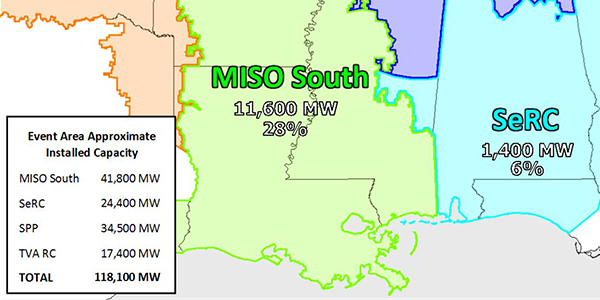By Holden Mann
Comments on a proposal to ensure generators are prepared for cold-weather events revealed widespread skepticism over the value of pursuing new standards.
NERC Panel Delays Action on Cold Weather Prep.)
The standard authorization request (SAR) would require generator owners and generator operators to:
- develop “winterization plans, procedures, and winter-specific and plant-specific operator awareness training;
- communicate “associated parameters for generating unit availability” during extreme cold weather to balancing authorities and reliability coordinators; and
- work with BAs and RCs during severe weather events to ensure reliable performance.
While most of the 42 respondents acknowledged the danger of underpreparedness during the winter months, many said the SAR in its current form is misguided.
A common objection voiced by operators in northern latitudes was that they already prepare for extreme cold as a matter of course, while the 2018 event affected generators in areas where winters are typically mild. For example, Thomas Foltz of American Electric Power observed that “RTOs often provide their own guidance” on cold-weather preparedness that are better tailored to the region in which they operate than any national standard could be. Kevin Conway from Public Utility District No. 1 of Pend Oreille County, Wash., said that “NERC has put out guidance on winter weather preparedness, and this should be sufficient.”
Richard Jackson, writing on behalf of the U.S. Bureau of Reclamation, said that while winterization is an essential goal, the SAR is too broad. If NERC mandates a cold-weather standard, he said, it should apply only to “areas that don’t normally see harsh winter conditions.”
“As the SAR is presently written, the future standard will result in an administrative burden that offers no increase in reliability for facilities that normally operate in a cold-winter environment,” Jackson said.
Some commenters in warmer areas also expressed misgivings about the proposal. Tony Skourtas of the Los Angeles Department of Water and Power observed that while extreme cold weather has created problems for his utility in the past, the issue was typically fuel supply. Even at the department’s generating station in Utah, which regularly encounters subzero temperatures in winter, “[the] turbine generator and the transformers historically have not been adversely effected.” As a result, he felt the SAR’s focus on generation resources provided no benefit for utilities like his.
Even among the few respondents who generally favored the SAR, many voices encouraged SPP to re-evaluate its scope. For instance, one commenter — identified only as “FE Voter, Segment(s) 1, 3, 5, 6, 4” — advised that nuclear facilities should be exempted from the final standard because the Nuclear Regulatory Commission already inspects for cold-weather preparedness.
Anthony Jablonski of ReliabilityFirst went further than this, arguing that a new standard provided a “perfect opportunity for other extreme weather conditions to be addressed,” such as heat waves, droughts or hurricanes. He also favored enlarging the standard to apply to transmission owners and operators, and to require winterization of switchyards and substations as well as generators.
Nominations for the standard drafting team closed on Nov. 5. NERC’s Standards Committee expects to make its selection and notify members this month.





